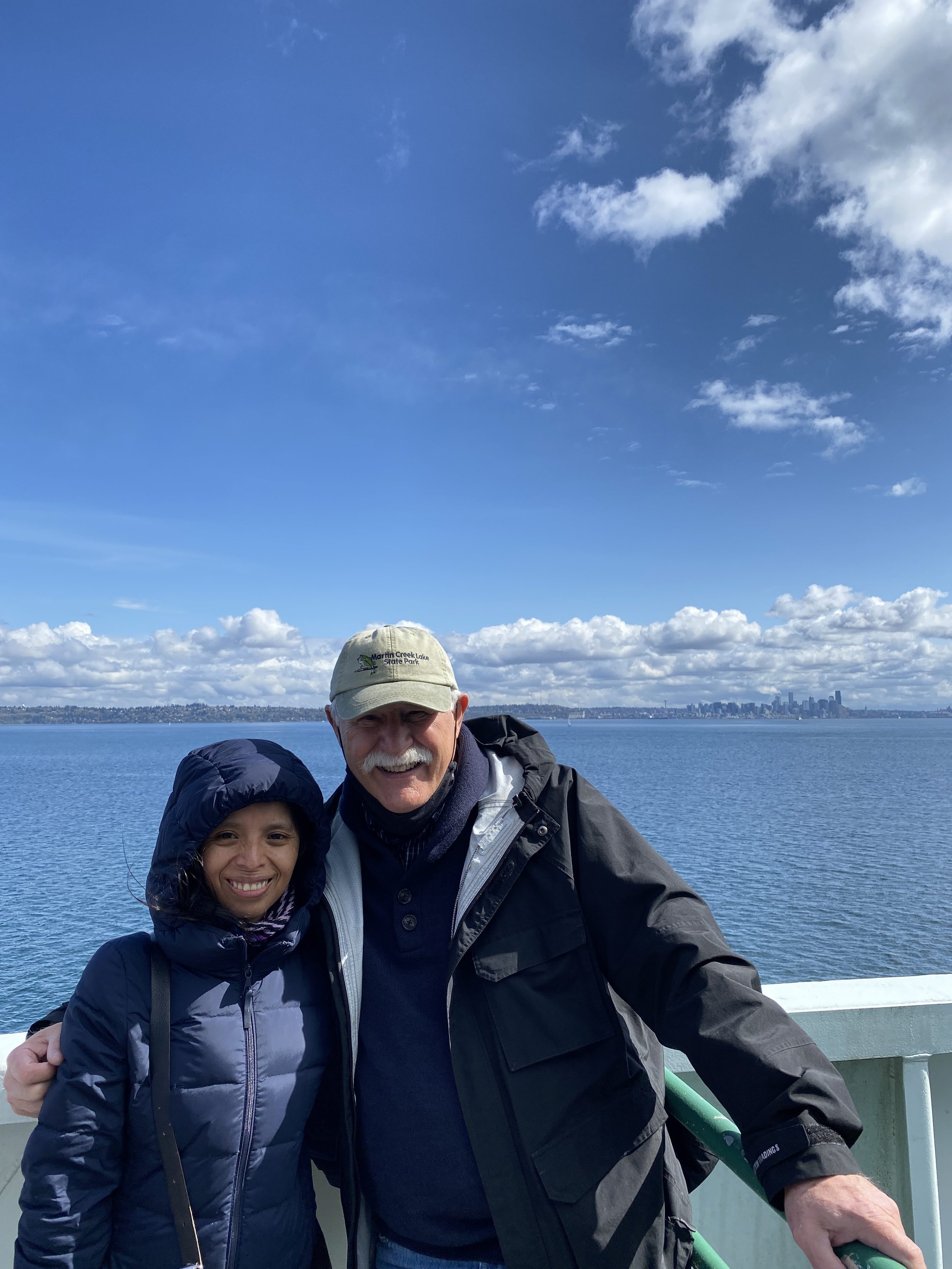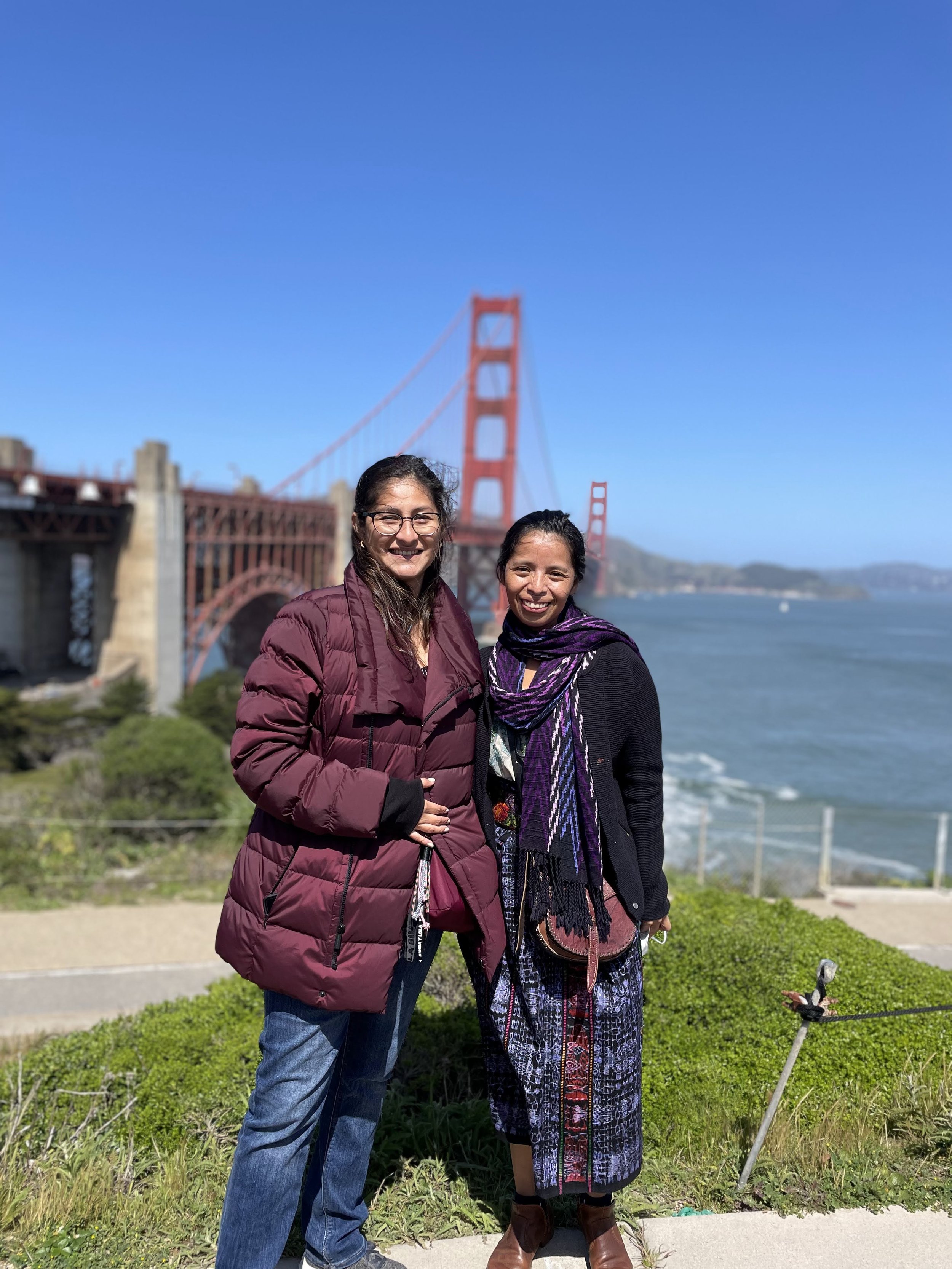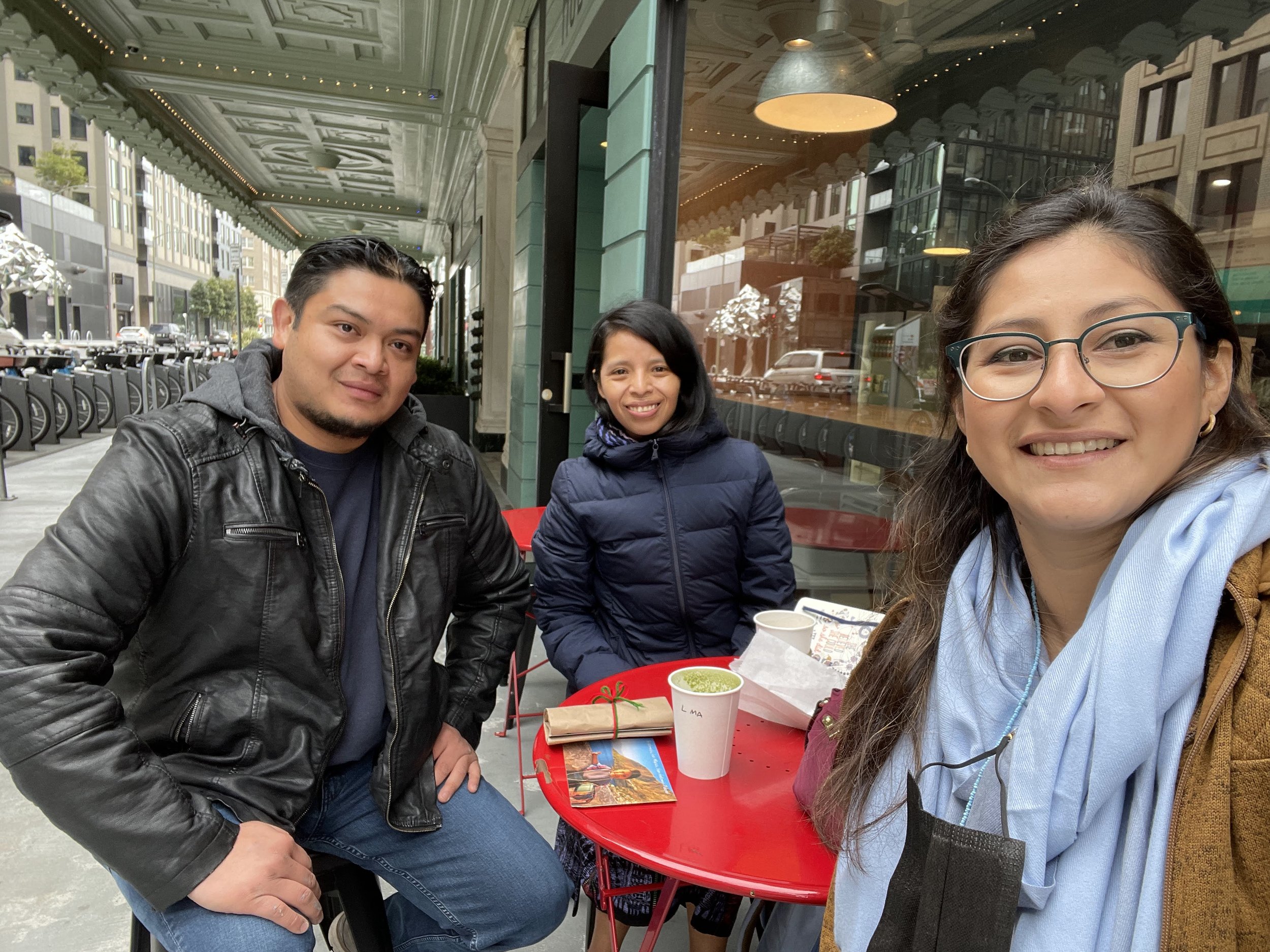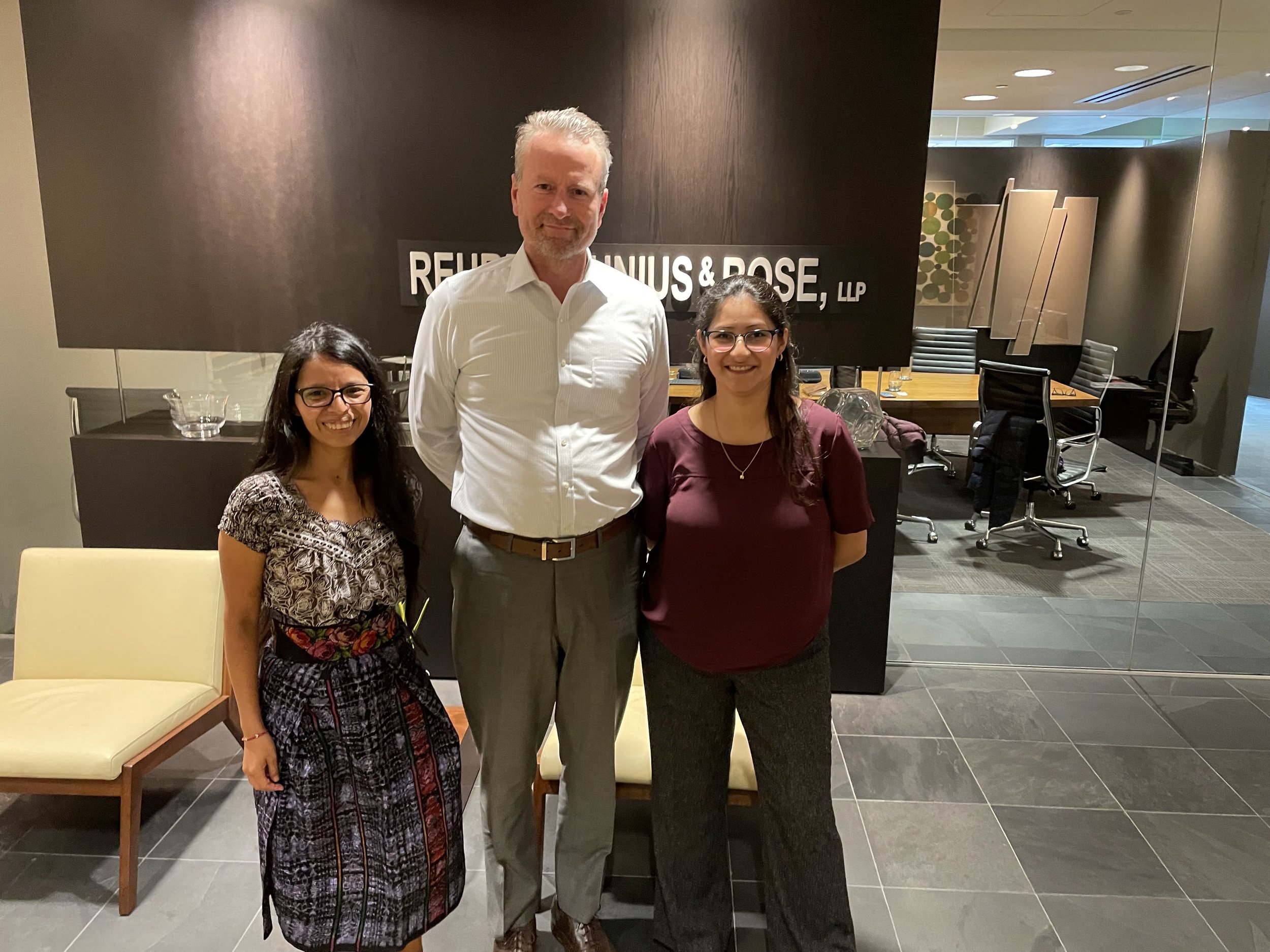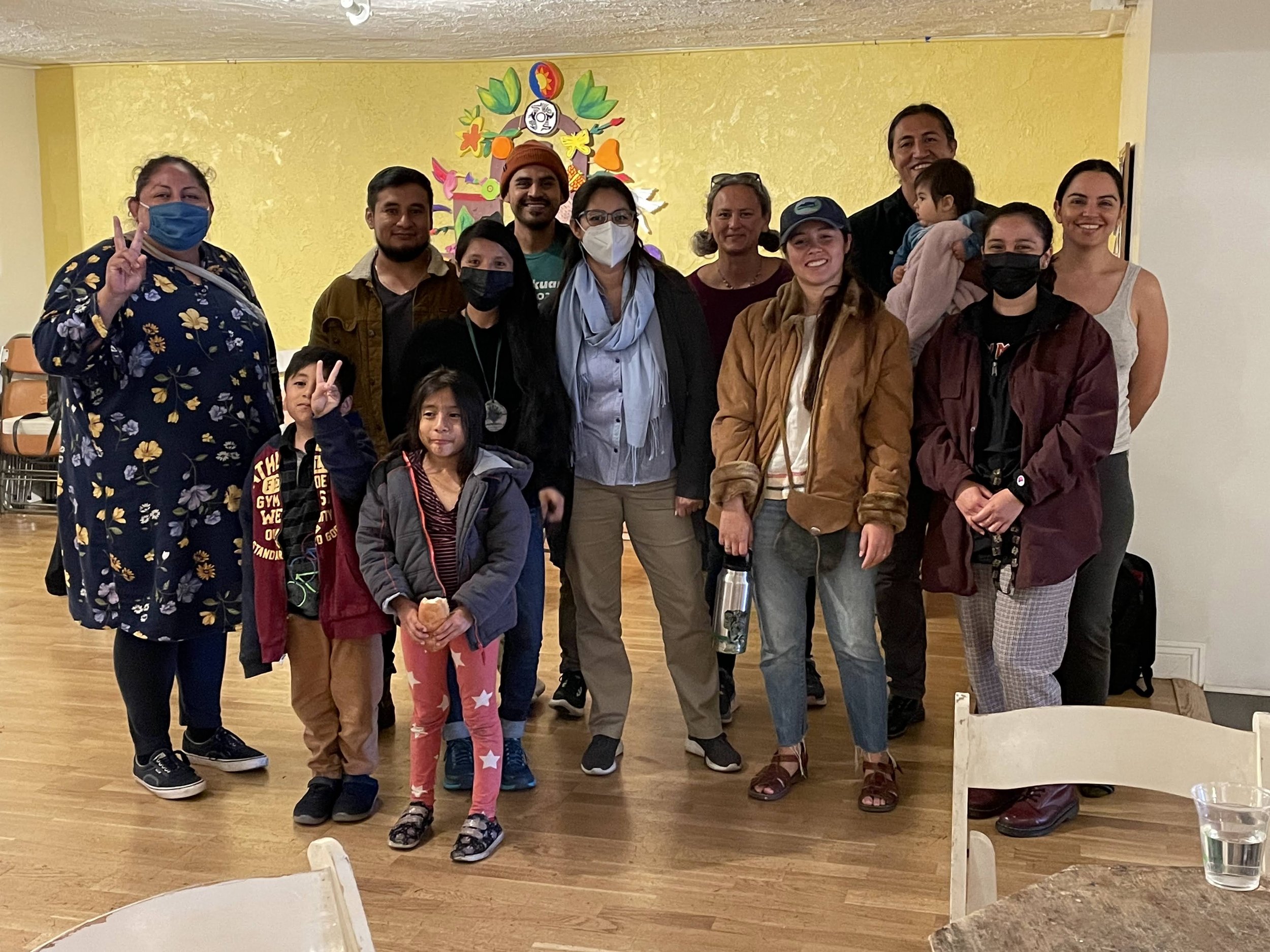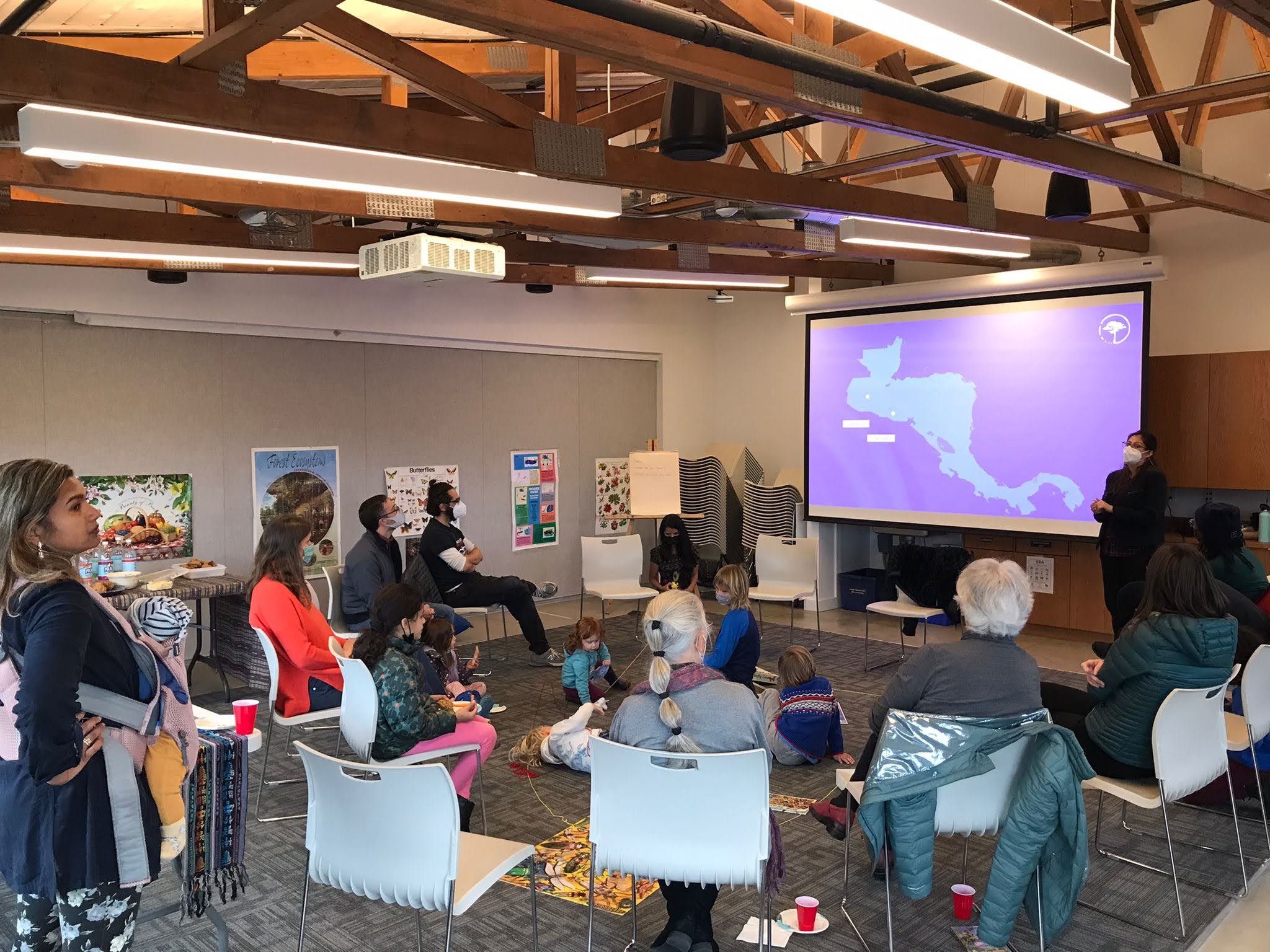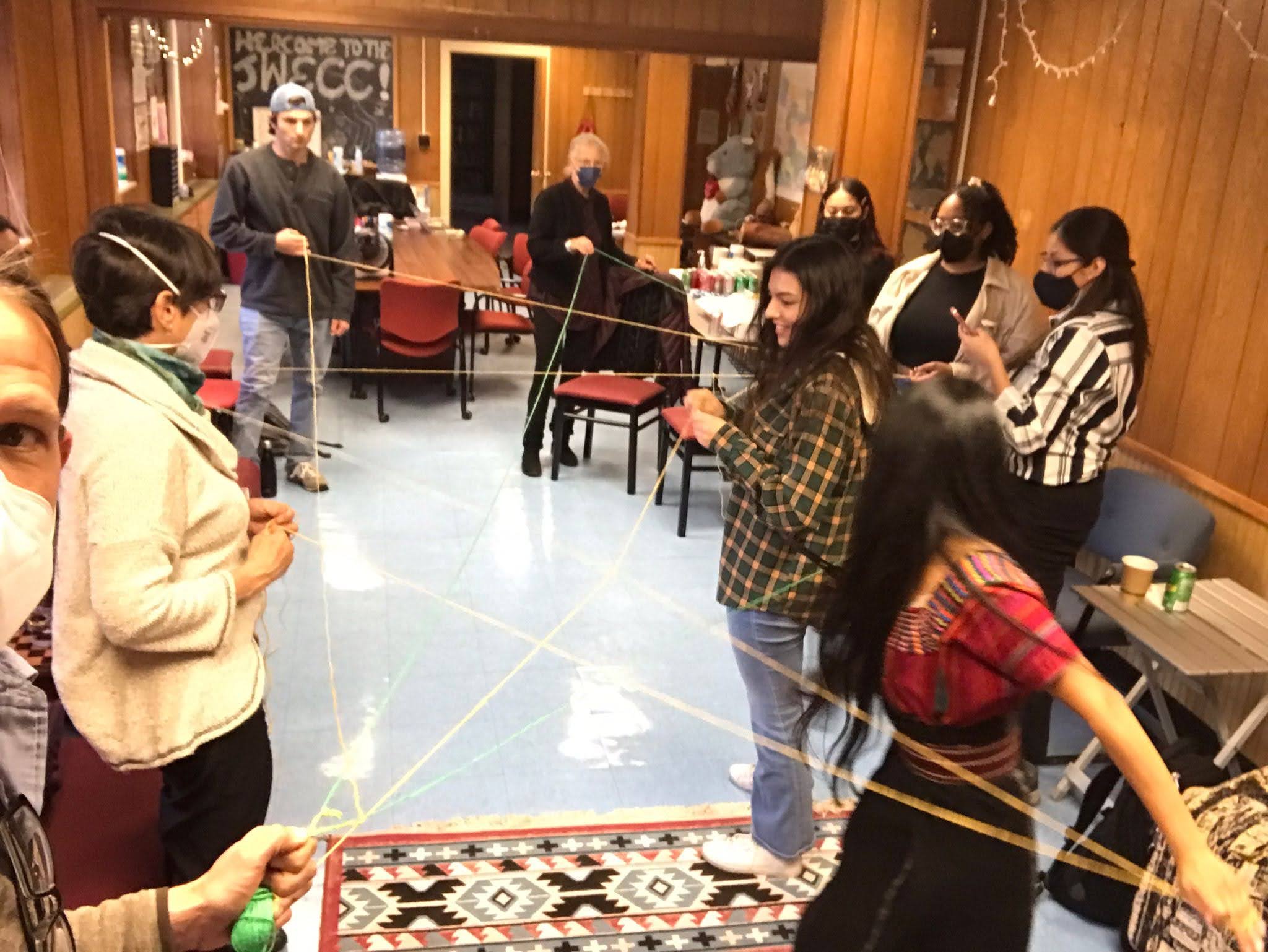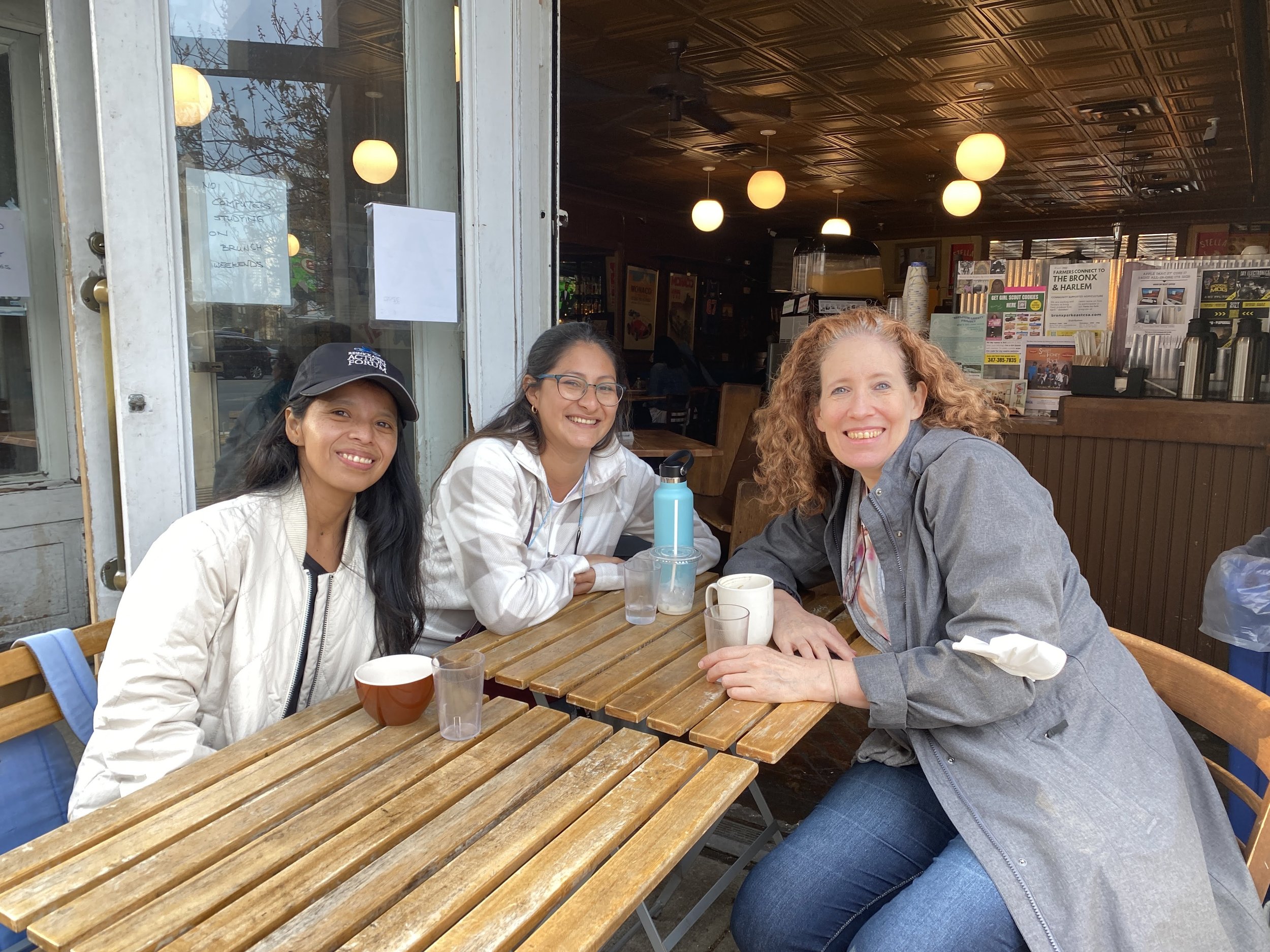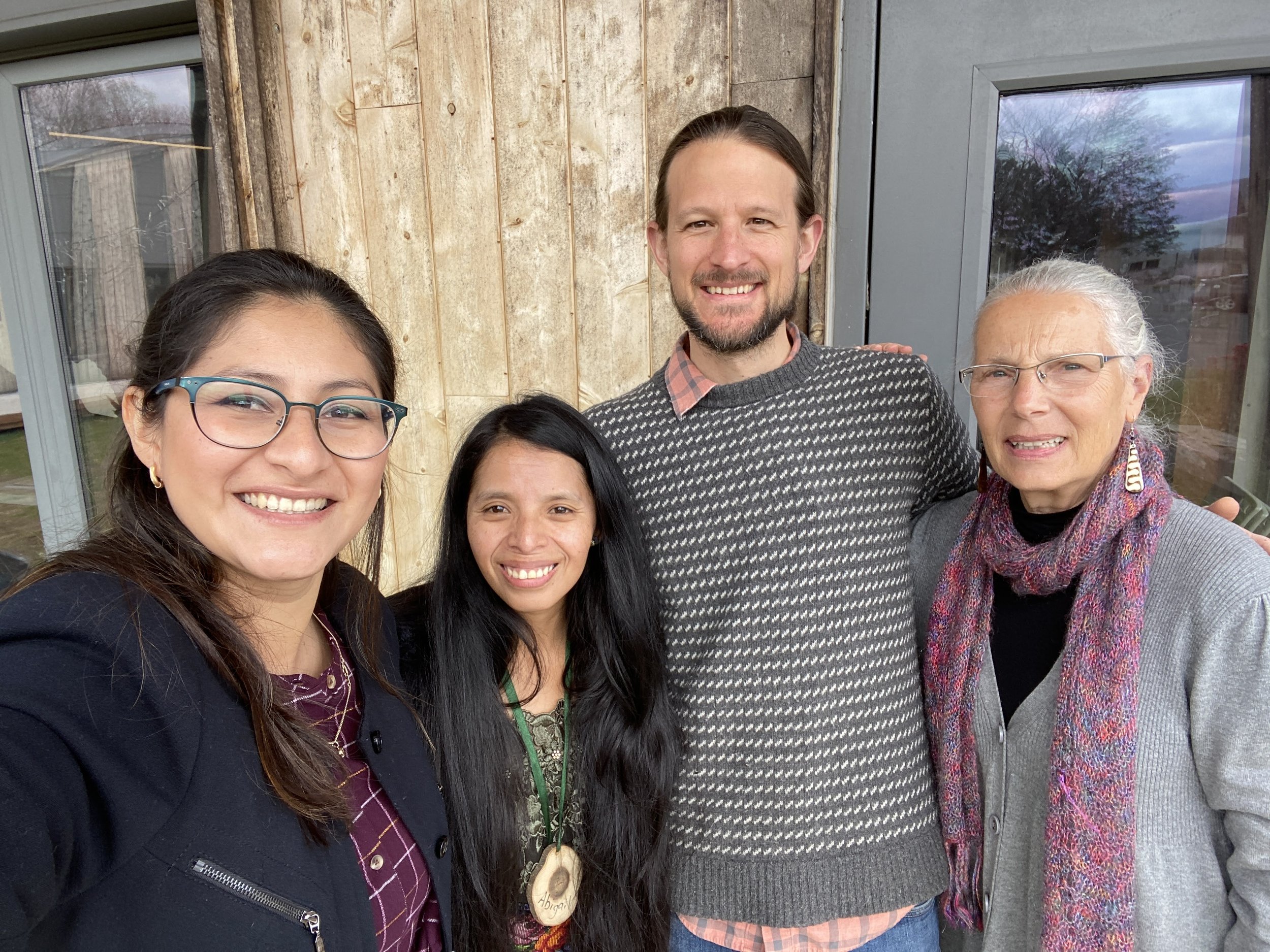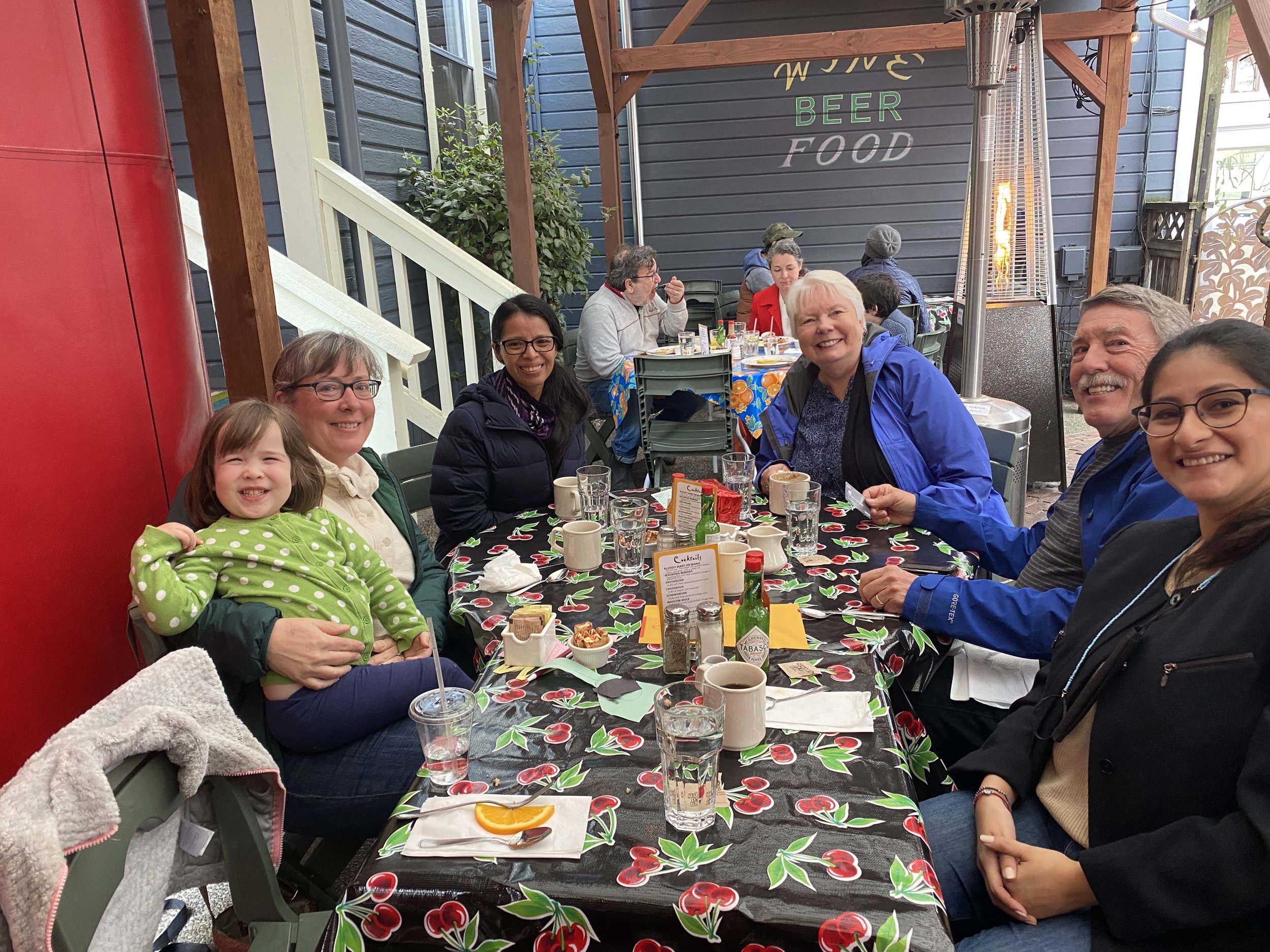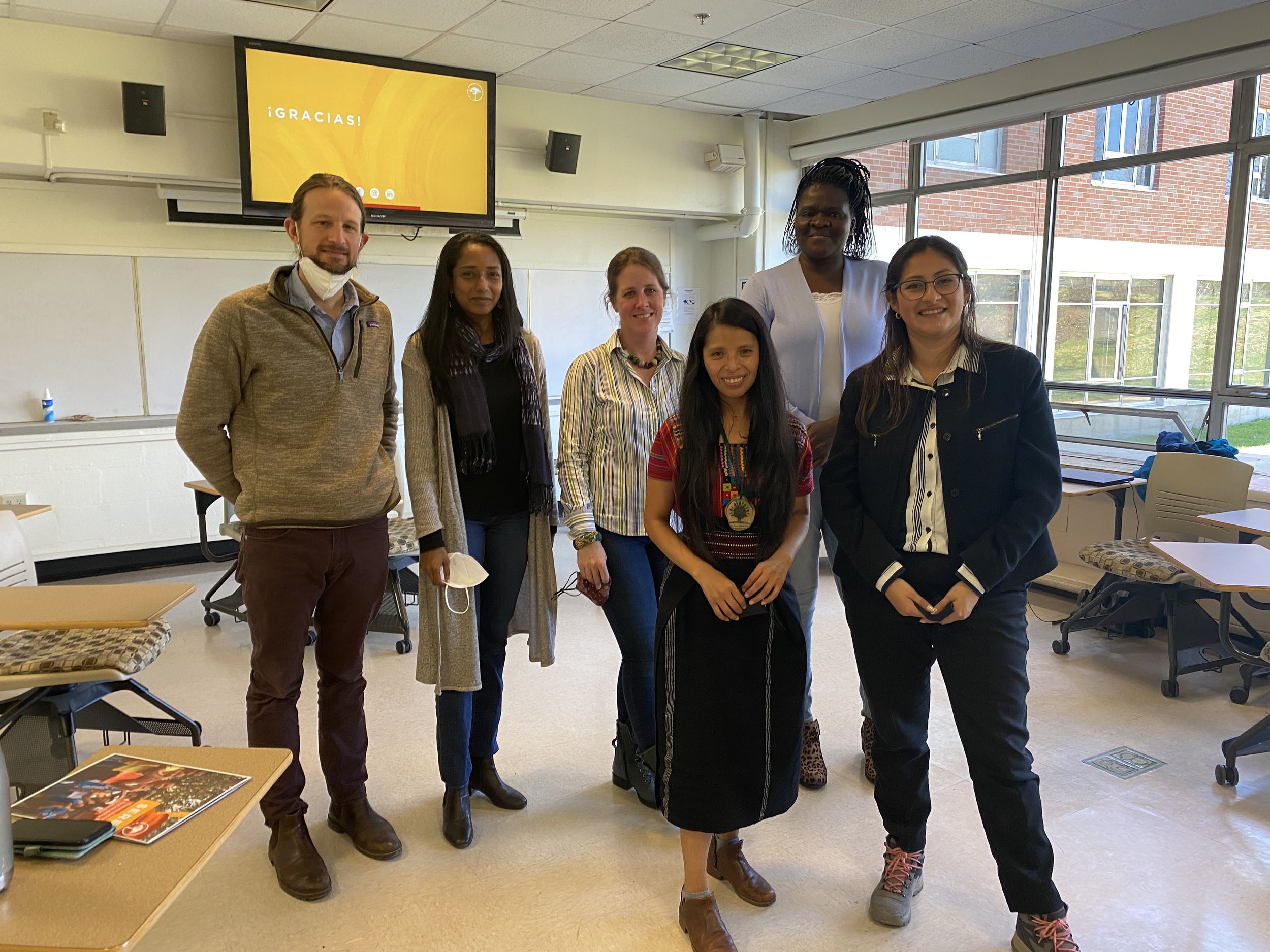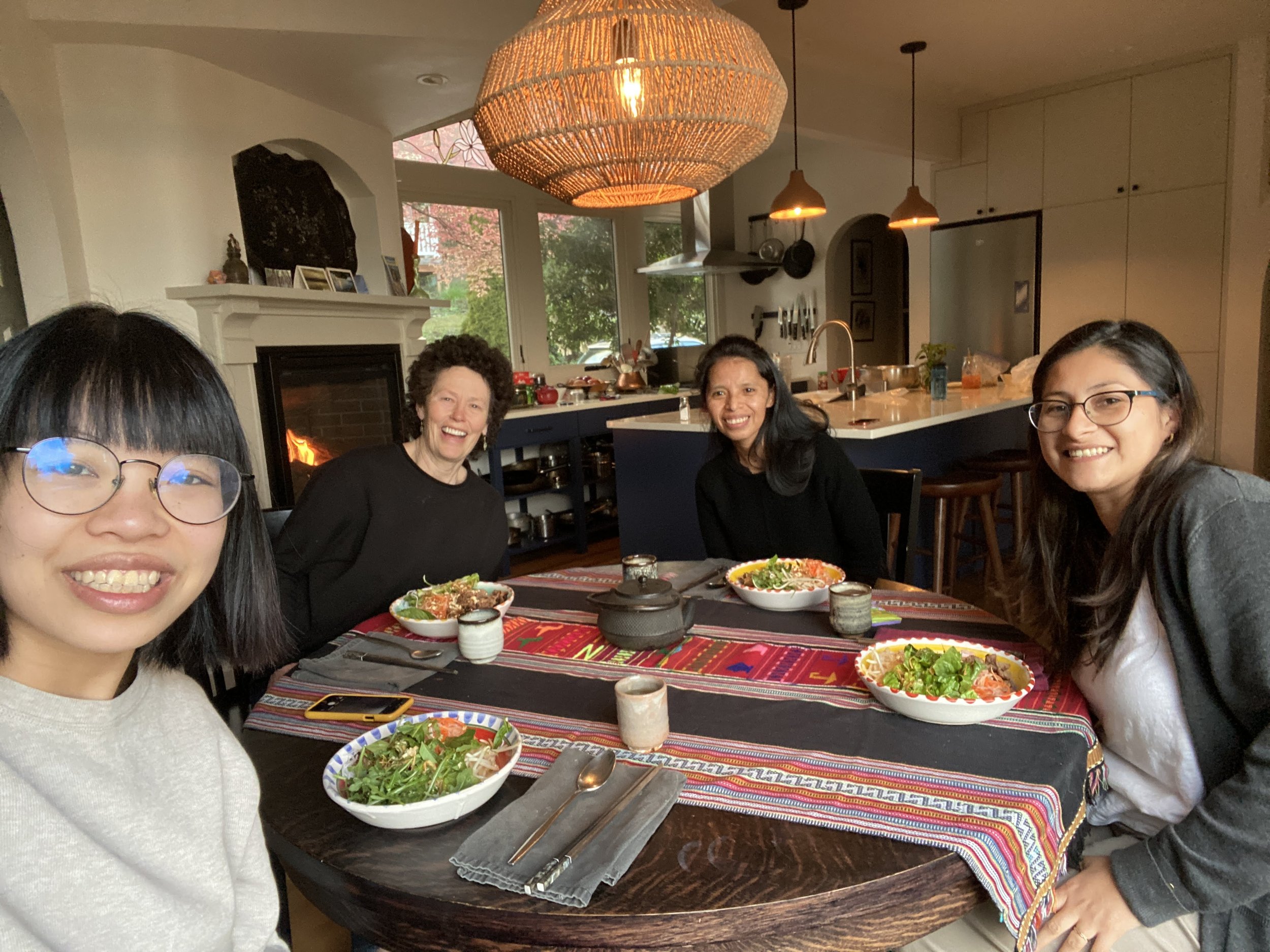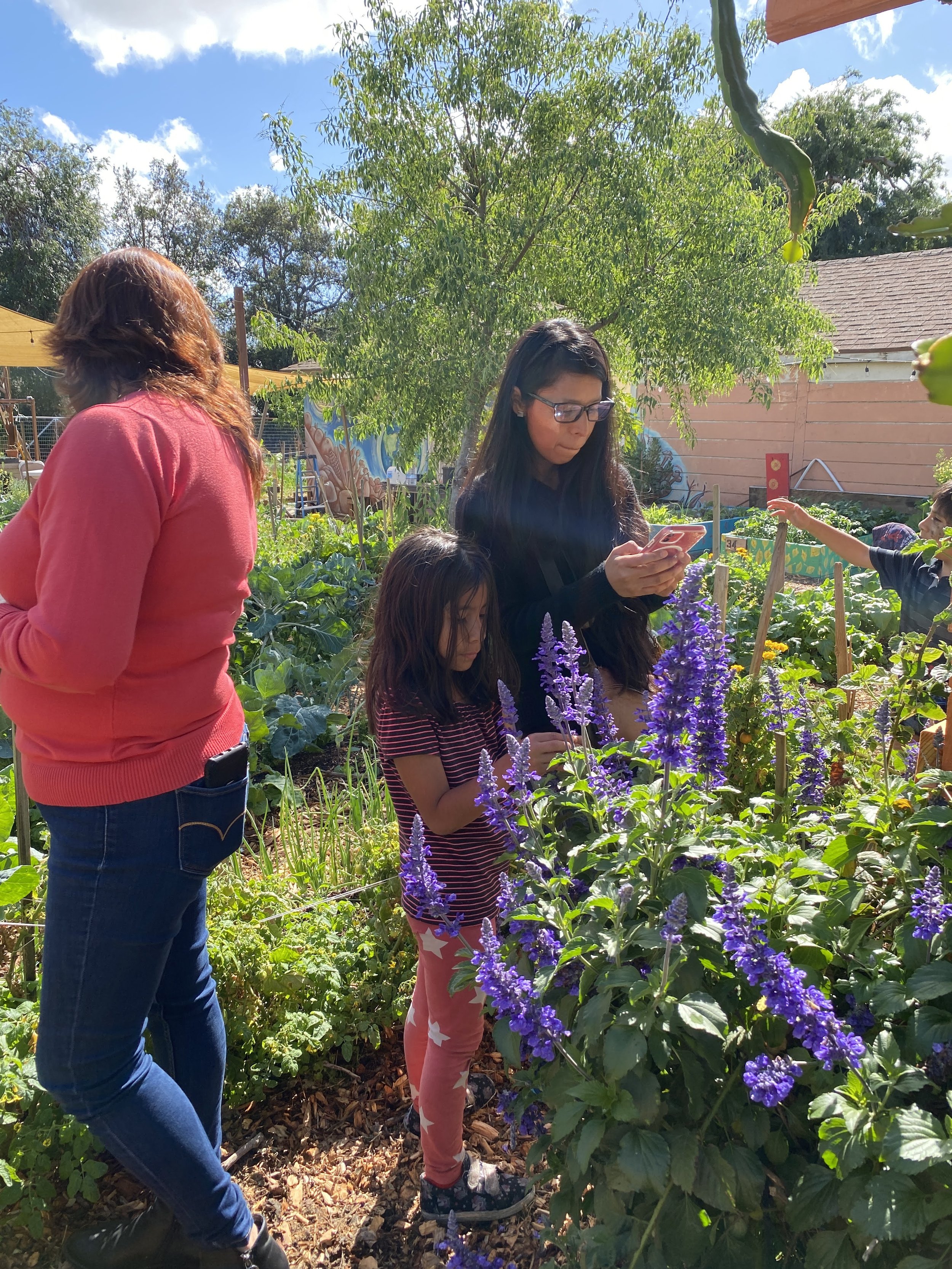Reflections from our co-leadership journey
The trip began when Abi arrived in Guatemala City coming from San Juan La Laguna, Sololá and carrying 15 bags of coffee that we still needed to find a space in our luggage. We changed suitcases and managed to get all the coffee needed to give during our meetings and with our different hosts.
From March 26 to April 20, 2022, we travel across the United States, starting with Los Angeles, San Francisco, Seattle, Boston, Amherst, New York and finalizing in different cities for the last week.
The main reason we wanted to pursue this trip, our very first one ever, was to create a connection with our network. Especially after two years of creating and cultivating relationships through zoom, we needed the opportunity to have one-on-one, presentations, dinners, field visits, and for people to know who Sara and Abigail were.
With the support of our board members, we dedicated so much time to craft who we could meet and connect with, months in advance. There was so much diversity with the connections, we had the opportunity to present what SERES does, to learn the great work of others, connect with the Central American diaspora and learn about the challenges that the US also faces.
We met over 50 people during our entire trip, mainly one-on-one meetings and small presentations which allowed us to really get to know each other. It was a full, exhausting but very fulfilling experience. As we reflect on the past month, we wanted to create something that could reflect our biggest learnings.
Immediate feedback about how we talk about SERES
It was a great opportunity for us to try different ways of presenting SERES and tailored them with every group or interaction. As we were talking about SERES with one of our hosts, they went: “I don’t really understand what you do” and this gave us a great opportunity to discuss in more detail about the bigger “why” and that person’s reason to support a specific cause. Understanding where that person is coming from, really helps us connect with what we are trying to accomplish, so that SERES experience inspires millions to contribute in personal and meaningful ways towards transforming our systems, societies and cultures.
We also noticed that by using more concrete and tangible examples of change and transformation, people would identify the impact and importance of our work. For example, as female youth leaders continue their leadership journey with SERES they decrease teenage pregnancies and increase years of schooling, by using examples like these we noticed people were more engaged. However these two indicators are not necessarily part of our metrics of success, so we often didn’t use them to talk about impact. So moving forward we want to integrate more similar examples with our current metrics of mobilizing social progress and youth contributing to resilience in their communities, as they are transforming their own narrative and development.
There is a story to share from our experience as CoDirectoras
As we met with people and shared our thoughts and insights, they started asking questions around our dynamic as CoDirectoras, especially when they were familiar with the context in Guatemala and the difficulty of an indigenous leader working alongside a non-indigenous leader.
There are so many things we have discovered working together, but one of the main things,we have focused on for the past three years was in cultivating each other’s strengths, and from there lead where we shine.
During the trip we discovered that there is so much insight, reflection and learnings from our co-leadership model that many organizations and peers are interested in hearing about, as some of them are actually considering and going through similar leadership transitions.
We are discovering how we can share more openly and broadly about our experience to support other non-profit leaders and their boards when thinking about leadership transition and co-leadership models.
Creating relationships beyond SERES
As we embarked on this trip, we wanted for people on our network to know us and to hear our stories. As we understood that the connection to support a cause like SERES often happens by knowing and trusting the leaders of the organization, we realized that this was a very important trip.
However, as the trip came to an end and we realized that we made beautiful new friends, there was also a feeling that those friends should be for SERES and not for Abi and Sara. We are now asking ourselves questions on how we create this network of friends for everyone who is part of SERES, and leave a stronger network of support, friendship and champions for generations to come.
We are still discovering how we can do that for SERES, and with time we are going to create these spaces to cultivate this friendship for everyone in the ecosystem.
Thank you to the community in the United States for hosting us, spending your time talking with us, and supporting our leadership, the central american youth, and SERES.
